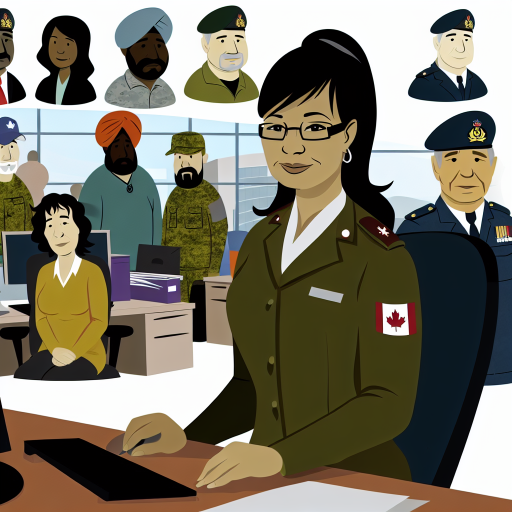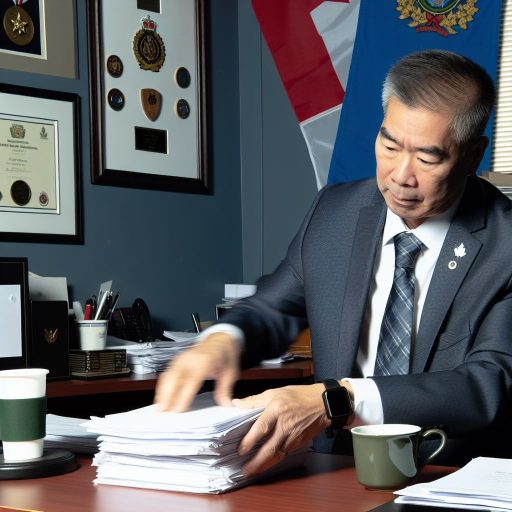Overview of Rehabilitation Programs in Correctional Facilities
Purpose of Rehabilitation Programs
Rehabilitation programs aim to reduce recidivism rates.
They help inmates develop skills for reintegration into society.
Furthermore, these programs provide a sense of purpose and stability.
Types of Rehabilitation Programs
Several types of programs exist within correctional facilities.
Vocational training prepares inmates for employment after release.
Educational courses help inmates earn diplomas or degrees.
Counseling and therapy address mental health and behavioral issues.
Substance abuse programs support recovery from addiction.
Benefits of Rehabilitation Programs
Rehabilitation programs offer numerous benefits for inmates.
They promote personal growth and self-awareness.
Additionally, they foster positive relationships and teamwork.
Inmates gain valuable life skills through these initiatives.
Ultimately, successful programs contribute to safer communities.
Challenges Facing Rehabilitation Programs
Despite their benefits, rehabilitation programs face significant challenges.
Funding limitations often hinder program availability and quality.
Staffing shortages can reduce the effectiveness of these initiatives.
Moreover, societal stigma surrounding inmates creates barriers.
Addressing these challenges is crucial for improving outcomes.
Role of Correctional Officers
Correctional officers play a vital role in the success of rehabilitation programs.
They provide supervision and ensure a safe environment for inmates.
Additionally, officers facilitate access to program resources.
They also serve as mentors and positive role models.
Effective communication between officers and inmates fosters trust.
Key Responsibilities of Correctional Officers in the Rehabilitation Process
Facilitating Access to Rehabilitation Programs
Correctional officers play a critical role in connecting inmates to rehabilitation programs.
They inform inmates about available resources and opportunities.
Unlock Your Career Potential
Visualize a clear path to success with our tailored Career Consulting service. Personalized insights in just 1-3 days.
Get StartedMoreover, officers assist in the sign-up process for these programs.
Monitoring Participation and Progress
Officers closely monitor inmates’ participation in rehabilitation efforts.
This ensures that inmates remain engaged and compliant with program requirements.
Additionally, officers report on the progress of individuals to program coordinators.
Providing Support and Guidance
Correctional officers offer emotional support to inmates facing challenges.
They listen actively to inmates’ concerns and aspirations.
Furthermore, officers guide inmates toward constructive behaviors and choices.
Creating a Safe Environment
A safe environment is essential for effective rehabilitation.
Correctional officers enforce rules that promote a safe and respectful space.
They address conflicts swiftly to maintain order amongst inmates.
Building Trusting Relationships
Trust is vital for successful rehabilitation outcomes.
Officers build positive relationships with inmates through respectful interactions.
Such trust encourages inmates to participate more willingly in their rehabilitation.
Collaboration with Mental Health and Educational Staff
Correctional officers work closely with mental health professionals.
They also collaborate with educational staff to support inmate development.
This teamwork enhances the effectiveness of rehabilitation programs.
Encouraging Skill Development
Officers promote skill-building activities among inmates.
They encourage participation in vocational and educational programs.
Such activities prepare inmates for successful reintegration into society.
Building Trust and Rapport with Inmates
Importance of Trust
Trust serves as a fundamental component in the rehabilitation process.
Correctional officers foster an environment where inmates feel secure.
This sense of security encourages honest communication.
Ultimately, it enhances participation in rehabilitation programs.
Active Listening Techniques
Active listening is vital for building rapport with inmates.
Correctional officers employ various strategies to demonstrate attentiveness.
They maintain eye contact and nod to show understanding.
Moreover, repeating back key points reinforces that they are listening.
These techniques help inmates feel valued and understood.
Consistent and Fair Treatment
Consistency in treatment is crucial for establishing trust.
Correctional officers must apply rules impartially to all inmates.
Fair treatment reduces feelings of resentment and hostility.
It promotes a sense of equality among inmates.
Engagement in Activities
Encouraging participation in activities fosters connection.
Correctional officers often facilitate group rehabilitation activities.
Inmates who engage with peers and officers build stronger bonds.
These interactions create a supportive atmosphere for rehabilitation.
Open Communication Channels
Open lines of communication are essential for trust-building.
Correctional officers encourage inmates to voice their concerns.
They provide avenues for inmates to express their feelings.
This openness fosters transparency and reduces suspicion.
Mentorship and Guidance
Correctional officers act as mentors for many inmates.
By providing guidance, they help inmates navigate challenges.
This support reaffirms their role as trusted figures within the facility.
Furthermore, mentorship can lead to personal growth for inmates.
Creating a Respectful Environment
A respectful environment enhances the rehabilitation process.
Correctional officers model respectful behavior towards inmates.
They demonstrate that respect is reciprocal and essential.
Creating a culture of respect leads to better inmate-officer relationships.
See Related Content: Environmental Officer Salary and Job Outlook in Canada
The Role of Correctional Officers in Coordinating with Mental Health Professionals
Importance of Collaboration
Correctional officers play a vital role in coordinating with mental health professionals.
This collaboration ensures timely interventions for inmates with mental health needs.
Moreover, it helps create a safer environment for both inmates and staff.
Effective communication is essential in these circumstances.
Additionally, it fosters a comprehensive approach to rehabilitation.
Facilitating Access to Mental Health Services
Correctional officers facilitate access to mental health services for inmates.
They identify individuals who may require psychological support.
In many cases, officers conduct initial assessments of inmates’ mental health.
They maintain close relationships with mental health staff for effective referrals.
Furthermore, they ensure that inmates attend scheduled therapy sessions.
Supporting Mental Health Programs
These officers support various mental health programs within correctional facilities.
They help implement programs tailored to inmates’ unique needs.
Additionally, officers monitor the participation and progress of inmates.
This involvement aids in creating individualized treatment plans.
Ultimately, it contributes to the overall rehabilitation process.
Training and Awareness
Training programs enhance officers’ understanding of mental health issues.
Such training increases their ability to respond effectively to crises.
Moreover, it equips them with skills to de-escalate situations involving distressed inmates.
Ultimately, awareness fosters a more compassionate approach to supervision.
Building Trust and Rapport
Correctional officers build trust and rapport with inmates.
This connection encourages inmates to seek help when needed.
Trust fosters a supportive environment conducive to rehabilitation.
Furthermore, positive relationships mitigate conflicts within the facility.
Ultimately, they contribute to overall inmate well-being.
Learn More: Top Challenges in the Veterans Affairs Officer Profession
Impact of Correctional Officers on Inmate Participation in Rehabilitation Programs
The Role of Correctional Officers
Correctional officers play a pivotal role in rehabilitation programs.
They serve as intermediaries between inmates and program administrators.
This position allows them to influence inmate perceptions positively.
Moreover, they can motivate inmates to engage in rehabilitation activities.
Creating a Supportive Environment
Officers contribute to a safe and supportive environment for learning.
They establish trust through consistent and fair interactions.
This trust encourages inmates to participate actively.
Also, officers often advocate for inmate needs in program design.
Facilitating Program Awareness
Correctional officers help increase awareness of available programs.
They inform inmates about the benefits of participating in these activities.
By sharing success stories, they inspire others to join.
This awareness significantly boosts overall participation rates.
Addressing Barriers to Participation
Officers identify and address barriers inmates face regarding participation.
Common barriers include fear, mistrust, or a lack of information.
Officers provide reassurance and resources to overcome these challenges.
This proactive approach fosters a culture of participation.
Measuring Participation Outcomes
Correctional officers can also track participation and outcomes effectively.
They observe inmate progress in rehabilitation programs closely.
This data enables them to provide feedback to program administrators.
Additionally, officers can suggest improvements based on their observations.
Collaborating with Rehabilitation Staff
Correctional officers work closely with rehabilitation staff.
This collaboration enhances the effectiveness of programs.
Officers share insights into inmate behavior and progress.
Such cooperation leads to more tailored and impactful rehabilitation efforts.
Building Long-term Relationships
Establishing long-term relationships with inmates can be beneficial.
Officers who build rapport can greatly influence inmate attitudes.
These relationships often lead to higher rates of successful rehabilitation.
Furthermore, they can create lasting change within the correctional environment.
You Might Also Like: Importance of Correctional Officers in the Justice System

Training and Skills Required for Correctional Officers in Rehabilitation Settings
Importance of Specialized Training
Correctional officers play a vital role in rehabilitation programs.
They require specialized training to effectively support inmates.
This training enhances their ability to manage various situations.
Moreover, it equips them with techniques for conflict resolution.
By understanding rehabilitation principles, they contribute to positive outcomes.
Key Skills for Successful Rehabilitation
Successful correctional officers possess several essential skills.
- Strong communication skills foster trust with inmates.
- Empathy allows officers to connect with varied backgrounds.
- Problem-solving skills help in managing challenging behaviors.
- Observation skills are crucial for identifying inmate needs.
These skills create a calmer environment conducive to rehabilitation.
Core Knowledge Areas
Correctional officers must have an understanding of core knowledge areas.
- Psychology helps in comprehending inmate behavior.
- Substance abuse awareness is important for rehabilitation efforts.
- Legal knowledge ensures compliance with regulations.
- Security protocols are essential for maintaining safety.
These areas of knowledge support effective interactions with inmates.
Ongoing Professional Development
Ongoing training is necessary for correctional officers.
They should participate in workshops and seminars regularly.
This engagement enables them to stay updated on best practices.
Continued education fosters an adaptive approach to rehabilitation.
Ultimately, it enhances the effectiveness of rehabilitation programs.
Learn More: How to Become a Correctional Officer in Canada
Challenges Faced by Correctional Officers in Implementing Rehabilitation Programs
Workplace Environment
Correctional officers operate in a high-stress environment.
This setting influences their ability to implement rehabilitation programs effectively.
Frequent disturbances and inmate conflicts disrupt scheduled activities.
Moreover, unstable conditions can impact officer morale.
Lack of Training
Many officers receive limited training in rehabilitation techniques.
This lack of knowledge affects their confidence in delivering programs.
Unfortunately, inadequate training hinders effective communication with inmates.
Officers often feel unprepared to address inmate needs.
Resource Limitations
Correctional facilities often lack necessary resources for rehabilitation.
Insufficient funding leads to program cutbacks and inadequate materials.
Additionally, this scarcity limits officer creativity in program designs.
As a result, officers struggle to engage inmates in meaningful activities.
Inmate Resistance
Not all inmates embrace rehabilitation opportunities.
Some display skepticism toward program effectiveness.
This resistance can discourage officers from pursuing initiatives.
Furthermore, motivational challenges hinder program participation rates.
Coordination and Collaboration
Effective rehabilitation requires teamwork among various stakeholders.
However, communication gaps exist between departments.
Officers often find it challenging to coordinate with healthcare and counseling staff.
As a result, this fragmentation can compromise program effectiveness.
Balancing Security and Rehabilitation
Officers prioritize maintaining security in correctional facilities.
Balancing security concerns with rehabilitation initiatives proves difficult.
This constant tug-of-war can undermine program implementation efforts.
Moreover, heightened security measures may limit inmates’ program participation.
Success Stories: Case Studies of Effective Rehabilitation Facilitated by Correctional Officers
Transformative Support at Willow Creek Correctional Facility
Willow Creek Correctional Facility initiated a groundbreaking rehabilitation program.
Correctional officer Sarah Mitchell played a pivotal role in its design.
Her dedication fostered trust and rapport with inmates.
This connection led to increased participation in educational programs.
In one case, inmate Mark Lawson transformed his life through these programs.
He obtained his GED and enrolled in a vocational training course.
With support from Officer Mitchell, he ultimately secured employment post-release.
His story inspired many others within the facility, creating a ripple effect.
Community Reintegration at Cedar Grove Penitentiary
Cedar Grove Penitentiary focused on community reintegration strategies.
Correctional officer John Ramirez led workshops that prepared inmates for life after prison.
These workshops included resume writing, interview skills, and budgeting.
Inmate Lisa Nguyen attended these sessions with skepticism at first.
However, Officer Ramirez’s encouragement motivated her to engage fully.
After completing the program, she successfully found housing and employment.
This success highlighted the importance of correctional officers in rehabilitation.
Peer Support Initiatives at Maple Leaf Correctional Center
Maple Leaf Correctional Center launched a peer support initiative.
Correctional officers trained selected inmates as peer mentors.
Officer Jenna Lee’s leadership ensured the program’s effectiveness.
Peer mentors facilitated support groups, providing encouragement and guidance.
Inmate David Thompson became a mentor after his own rehabilitation journey.
His story resonated deeply with other inmates striving for change.
Many participants reported improved mental health and motivation.
This initiative solidified the bond between officers and inmates.
The Impact of Family Connections at Riverbend Correctional Institution
Riverbend Correctional Institution prioritized maintaining family connections.
Correctional officer Tom Edwards coordinated family visitation events.
These events allowed inmates to interact with their loved ones.
Inmate Rachel Smith found solace during these gatherings.
Officer Edwards’s compassionate approach helped foster positive interactions.
Rachel’s ability to connect with her children improved her outlook.
Subsequently, she committed to her rehabilitation efforts.
This program demonstrated the role of family in effective rehabilitation.
Holistic Approaches at Mountain View Correctional Facility
Mountain View Correctional Facility embraced holistic rehabilitation methods.
Correctional officer Ben Park integrated mindfulness and wellness programs.
These programs focused on mental and emotional well-being.
Inmate Samantha Green participated in yoga and meditation sessions.
Officer Park created a safe environment for inmates to explore these practices.
Samantha reported reduced anxiety and increased self-awareness.
Her experience encouraged other inmates to partake in similar wellness activities.
The holistic approach significantly shifted the facility’s rehabilitation culture.
Additional Resources
CCWORK protocol: a longitudinal study of Canadian Correctional …
Programs, Reentry and Rehabilitative Services | South Carolina …




